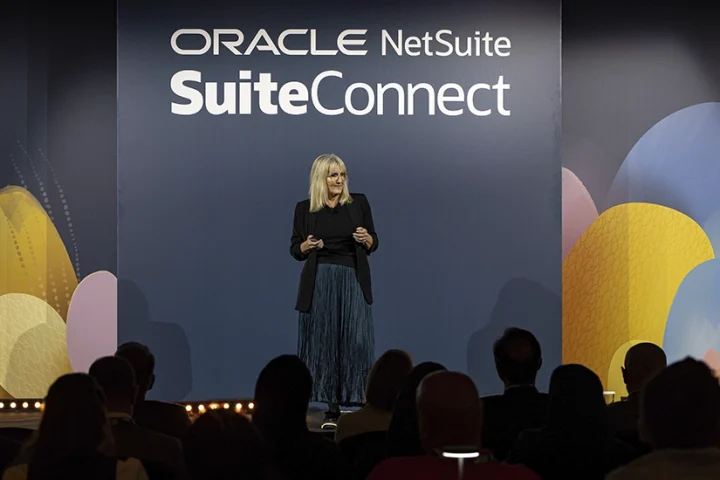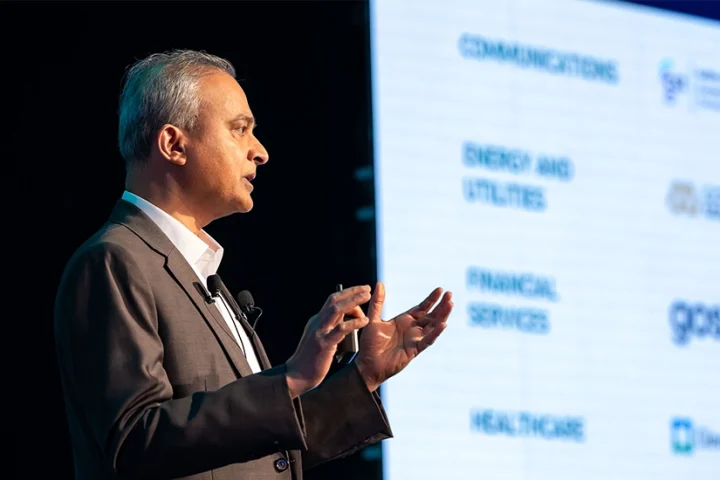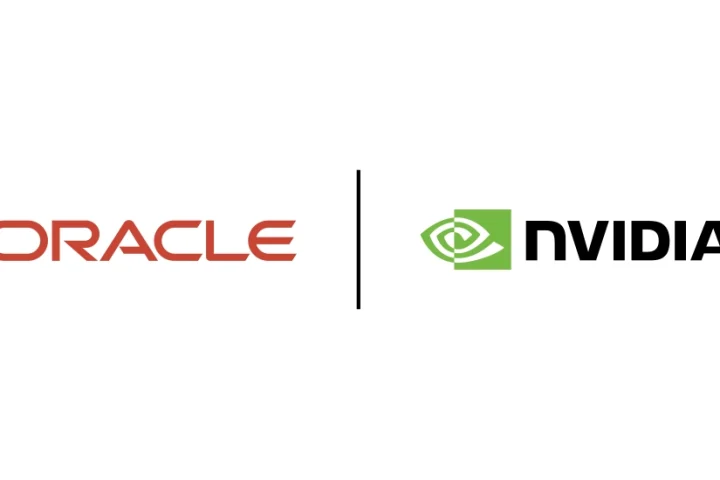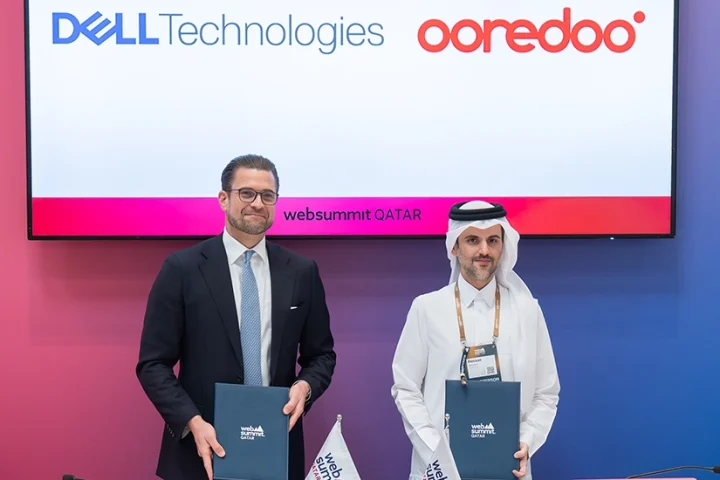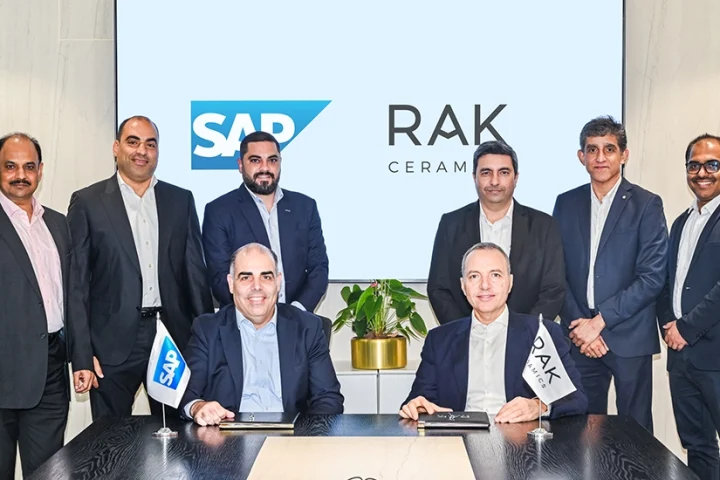By Arun Shankar
Enterprises have always viewed public cloud as a lighter, scalable, less expensive version of the cloud that in hosted on-premises as a private cloud. The private cloud securing the prized jewels of the organisation, being more expensive and more cumbersome to manage, than the public cloud. A hybrid architecture, where both are feathers from the same bird, was not available till recently.
Now Oracle has migrated its entire Generation 2 public cloud infrastructure, software, and services into a dedicated private cloud built exclusively for an individual customer. One of the principle use cases driving this innovation is to meet the data residency laws and regulations, which govern many mission critical and national infrastructure enterprises.
This includes government, public sector, central banks, healthcare, banking and financial enterprises. Other enterprises such as telecom and communication enterprises need to operate edge clouds and network close to their markets to access real time data and trends.
Explains Regis Louis, Vice President Technology Strategy, EMEA, Oracle, “Many customers want to adopt the cloud computing model not just for databases but for the entire estate. They want to move their existing IT towards a cloud computing model. They want agility and pay per use and not just for their data but for the entire estate. But some of these customers cannot go to the public cloud, whether because of regulations, data sovereignty, industry regulations, or telecom constraints.”
Louis sees potential customers falling into two market segments. The first is highly regulated industries but who are also keen to have Oracle’s complete cloud services running in their datacentre. The second market segment are industries who are not so heavily regulated, but because of technical reasons like latency and performance shy away from Oracle’s public cloud. “We see traction in that space also, and there are many different use cases even beyond the regulated industries,” he points out.
By making available Oracle’s Generation 2 public cloud infrastructure, known as Dedicated Region Cloud@Customer, inside an enterprises data centre as a private cloud, an enterprise can get the full capability of the public cloud, within its own secure infrastructure.
The service level agreements for Dedicated Region Cloud@Customer, Exadata Cloud@Customer are identical to those in the public cloud. The cost of this dedicated private cloud, with the end to Oracle public cloud stack, hosted inside the customer’s datacentre is $0.5 Million per month.
Oracle’s Dedicated Region Cloud@Customer includes 50+ services including Oracle Fusion Saas, compute, storage, analytics, big data, application development components. Such a customer gets access to the full availability of the Autonomous solution stack including Autonomous Database, Autonomous Linux OS, and Autonomous Data Guard.

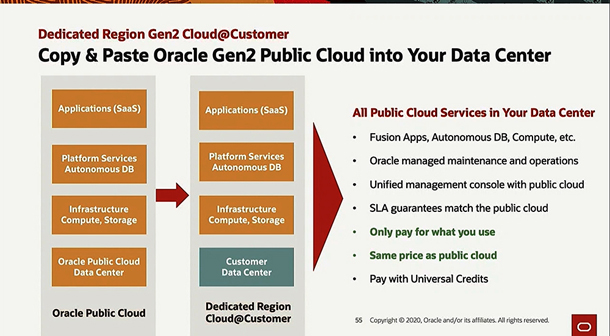
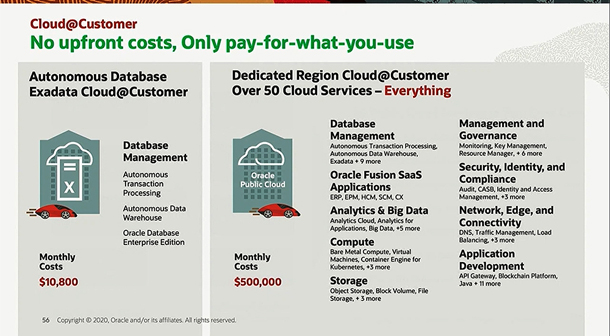
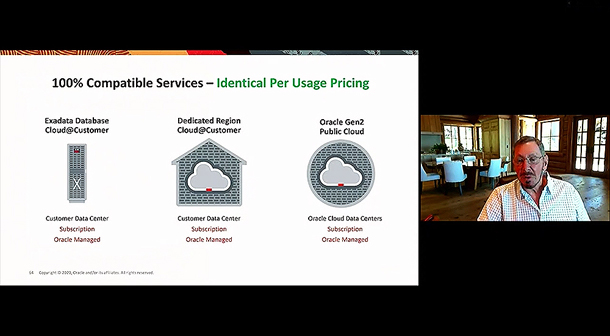
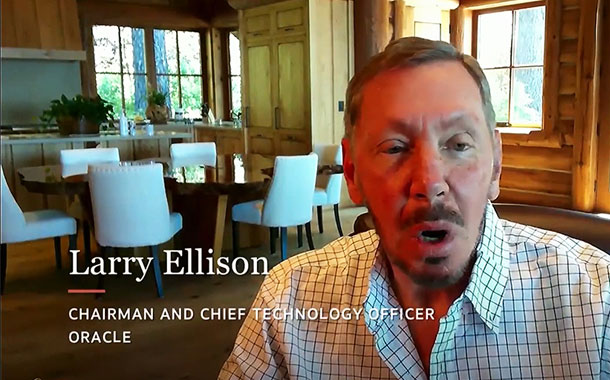
Oracle’s Dedicated Region Cloud@Customer is the same as a copy and paste of Oracle’s complete cloud portfolio. It includes everything that Oracle has to offer – over 50+ services. Says Ellison, “Nobody in this world has anything like this available immediately. Nobody gives you a complete public cloud behind your firewall. It is not just the database – it is everything in the Gen 2 public cloud. And I mean all of it,” he remarks.
To make this work, Oracle brings in the hardware, systems, applications and a dedicated network link into the customer’s datacentre. Adds Louis, “For those customers who want to adopt the full cloud model but cannot adopt the public cloud, we are introducing Oracle Dedicated Region Cloud@Customer. It is an exact replica of what we offer in the public cloud that we build for one customer, dedicated to one customer, inside their own data centre.”
He continues, “We could have gone different ways in architecting this. The direction we took was to build a real dedicated region, same as our 24 commercial regions. We build a similar region dedicated to the customer.” The Dedicated Region Cloud@Customer set up on-premises is connected to the global Oracle Cloud Infrastructure with a network backbone, ensuring the private cloud receives updates and batches. There is also back and forth telemetry information on the health of the on-premises systems.
So, the task is to actually build a cloud region inside a customer’s datacentre. Clearly a significant investment in terms of hardware, systems, applications and set-up time. Is replicating these units therefore a challenge for Oracle? Responds Louis, “We will build as many of those as customers demand and we have a lot of demand at the moment.”
Certain use cases may require that the customer access Oracle applications and databases from the public cloud as well from Oracle’s Dedicated Region Cloud@Customer. Hence it would be a typical combination of private and public cloud. “I would qualify them as a hybrid type of deployment, some of it running inside their own datacentre, some of it running in the public cloud. Even though it is the exact same technology in both, this is still hybrid in my mind,” adds Louis.
Early bird customers for Oracle’s Dedicated Region Cloud@Customer include Oman Information Technology and Communications Group and Nomura Research Institute in Japan.
Oman Information Technology and Communications Group is an entity owned by Government of Oman. Oracle Dedicated Region Cloud@Customer centralised digital framework will support cloud-ready IT services and secure data residency file under Oman Investment Authority. Oracle Dedicated Region Cloud@Customer enables a variety of use cases, while following the country regulations regarding data sovereignty.
For Nomura Research Institute in Japan, Oracle Dedicated Region Cloud@Customer enables SOC2 reporting based on Japanese security standards in financial industries. It also allows broader cloud services and tools provided by Oracle.
Lydia Leong, VP Distinguished Analyst, Gartner, writes in a recent blog:
https://blogs.gartner.com/lydia_leong/2020/07/09/finally-private-cloud-identical-to-public-cloud/
Excerpts
There have been many attempts to introduce public-cloud-consistent private cloud offerings. Gartner now has a term, distributed cloud, to refer to the on-premises and edge services delivered by public cloud providers.
What customers really want:
- Location of customer’s choice
- Single-tenant
- Data guaranteed to stay within environment
- Isolated control plane
- Private self-service interfaces, portal, API endpoints
- No tethering or dependence on public cloud control plane
- No Internet exposure of the self-service interfaces
- Delivered as a service
- Not significantly more expensive than public cloud
- Cloud services identical to public cloud regions
And now it’s here – the world now has Oracle Dedicated Regions Cloud@Customer.
This will raise Oracle Cloud Infrastructure’s profile as an alternative to the big hyper scalers. Oracle has quietly been actively engaged in selling this for some time. Oracle has made significant strides, surprisingly so, in expanding Oracle Cloud Infrastructure’s capabilities over this last year. So, when they say all services – that is now a pretty significant portfolio. Likely enough for more customers to give Oracle Cloud Infrastructure a serious look and decide whether access to private regions is worth dealing with the drawbacks.
Taking on AWS Outpost
Ellison stresses that with Oracle’s Dedicated Region Cloud@Customer, since the complete public cloud is ported to the private cloud installation inside the customer’s datacentre, the customer’s data never leaves the datacentre. Whereas that is not the case with AWS Outpost – AWS’ service equivalent for Oracle’s Dedicated Region Cloud@Customer.
“Your data always leaves your data centre.” Since the backup for AWS Outpost is uploaded into AWS Cloud every single day, Ellison questions whether AWS Outpost is meeting the customer requirements for data residency. By performance comparison, Oracle’s second-generation cloud infrastructure is one-two orders of magnitude higher than AWS Outpost.
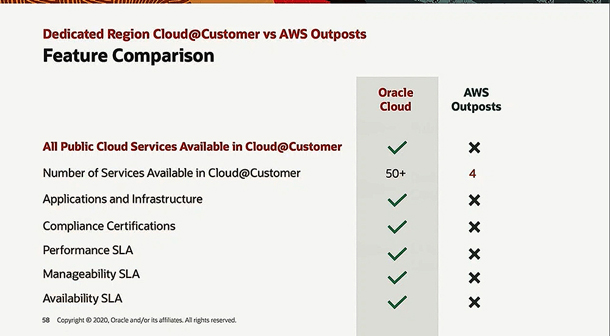
Database and compute from the cloud
For those customers opting for only the hardware and database in the Oracle public cloud, or database management, and not the Oracle Fusion applications and rest of the software, Oracle offers Exadata Cloud@Customer. This is again available as a private cloud, setup and hosted inside the customer’s datacentre, for a minimum fee of $10,800 per month.
While Exadata Cloud@Customer running inside the customer’s datacentre has been available for three years, the inclusion of Oracle Autonomous Database as part of the Exadata Cloud@Customer, is more recent, according to Louis. “That is why this announcement is important, since this innovation is being made available for those running Exadata Cloud@Customer.”
For managing the orchestration of Oracle cloud services whether in the public cloud or private cloud, Oracle provides enterprises the Unified Management Console for customers to manage their Oracle cloud services. Oracle’s Dedicated Region Cloud@Customer has the same performance as Oracle’s Generation 2 public cloud. It offers serverless elasticity, autoscaling, and autonomous manageability.
Samsung SDS, NTT DoCoMo, Crédit Agricole CIB, Entel, RKK Computer Service, State of Queretaro in central Mexico, Siav, are existing customers of Exadata Cloud@Customer.
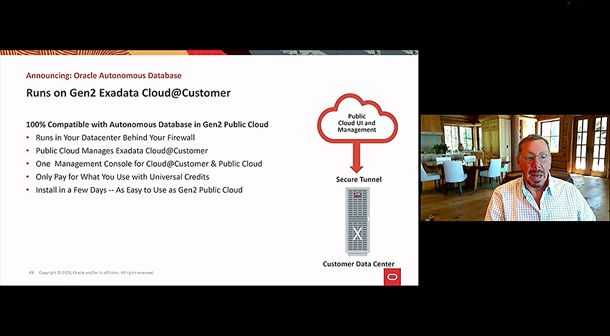
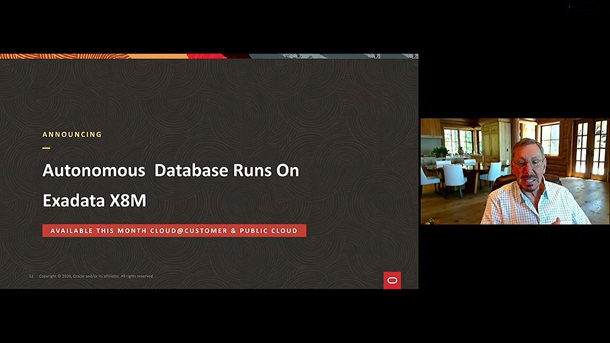
Oracle Dedicated Region Cloud@Customer to drive private cloud
Most enterprises are continuing to run a part of their workloads in on-premises datacenters. This has resulted in demand from customers for a hybrid architecture, where the same services and portability of applications exists between public and on-premises cloud environments. Until today, no solution was able to bridge the gap between cloud and on-premises environments.
Typically, on-premises offerings from cloud providers offer a small subset of the services available in public cloud regions. Enterprise customers have been asking for the full experience of a public cloud on-premises, including access to all of Oracle’s cloud services, to run their workloads.
Driven by strong customer demand, Oracle has announced availability of Dedicated Region Cloud@Customer, a fully-managed cloud region with Oracle’s second-generation cloud services, including Autonomous Database and Oracle SaaS applications, within the customers datacenters. The service is priced at $0.5M per month.
With this announcement, Oracle is porting all of its cloud services to on-premises. Enterprises can now use Oracle’s cloud services wherever they need them – in the cloud or on premises via Cloud@Customer offerings. With Oracle Dedicated Region Cloud@Customer, enterprises get all of Oracle’s second-generation cloud services, including Autonomous Database, in their datacenters. Other cloud service providers cannot offer customers a comparable dedicated cloud region running on-premises.
Oracle Dedicated Region Cloud@Customer includes full management capabilities and access to new features and functions the moment they become available in Oracle’s public cloud. It provides strong isolation of customer data, including all API operations, which remain local to customer datacenters and provide the highest levels of security.
Enterprises get the same set of modern cloud services, APIs, industry-leading SLAs, superior price-performance, and highest levels of security available from Oracle’s public cloud regions, within their own datacenters. This is well suited for highly regulated or security-sensitive businesses needing to meet latency and data residency requirements.
Oracle Dedicated Region Cloud@Customer is certified to run Oracle SaaS products including ERP-Financials, HCM, SCM, and CX, making it an integrated cloud experience on-premises. Customers only pay for services they consume using the same predictable low pricing offered in Oracle’s public cloud regions.
With Dedicated Region Cloud@Customer, Oracle is delivering public cloud experience into customer datacenters, with no changes in pricing or capabilities. This represents a new direction for public cloud providers, who have offered only limited versions of their services to customer premises.
Oracle Dedicated Region Cloud@Customer brings the capabilities of Oracle Cloud Infrastructure and Oracle Fusion SaaS Applications, including over 50 services, on-premises. This brings together public cloud service capability with the compliance, latency and co-location benefits of on premises. This can be a game changer for large scale digital transformation efforts at enterprises.
Oracle Autonomous Database ported onto Exadata Cloud@Customer
Building on the success of Oracle’s Exadata Cloud@Customer service over the last three years, Oracle announced the availability of Oracle Autonomous Database on Exadata Cloud@Customer. This combines Oracle Database with Oracle Database platform—Exadata—delivered as a cloud service in customer datacenters. It eliminates database management and capital expenditures while enabling pay-per-use and elastic consumption of database cloud resources. Autonomous Database is available to run in customer data centers both as a standalone offering and as part of Oracle Dedicated Region Cloud@Customer.
Oracle Autonomous Database on Exadata Cloud@Customer is the fastest transition to a cloud model with typical deployments taking less than a week, while data never leaves the customer’s datacenter. This is ideal for enterprises that find it challenging to move their database workloads to the public cloud due to data sovereignty, regulatory requirements, security and performance concerns, or because their on-premises applications and databases are tightly coupled.
Oracle Autonomous Database on Exadata Cloud@Customer enables organisations to move to an environment where everything is automated and managed by Oracle. Autonomous operations include: database provisioning, tuning, clustering, disaster protection, elastic scaling, securing and patching, which eliminates manual processes and human error while reducing costs and increasing performance, security and availability. The serverless architecture automatically scales to match changing workloads, providing true pay-per-use.
Every business has a set of ISVs and home-grown applications that they depend on to run all aspects of their business. For companies serious about running these types of critical Oracle-based applications in an on-premises enterprise database cloud, Oracle Autonomous Database on Exadata Cloud@Customer is one such offering. Oracle Autonomous Database on Exadata Cloud@Customer reduces customers’ infrastructure and database management by up to 90% because they only have to focus on the schemas and data inside their databases, not on running the underlying database infrastructure.
Oracle Autonomous Database on Exadata Cloud@Customer combines Exadata X8M platform with Oracle’s advanced machine-learning-powered database and second-generation cloud control plane for an enterprise-grade database cloud experience on-premises. The Oracle Cloud is a suite of integrated applications for Sales, Service, Marketing, Human Resources, Finance, Supply Chain and Manufacturing, plus Generation 2 Infrastructure featuring the Oracle Autonomous Database.



